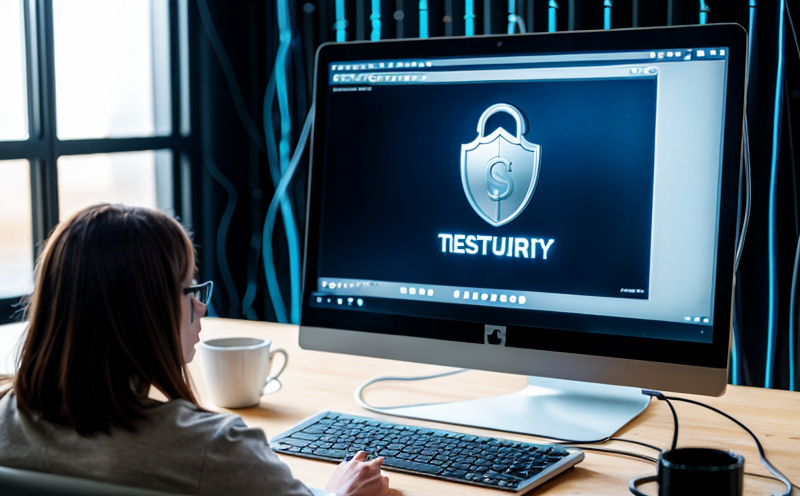Secure Socket Layer SSL and TLS Network Security Testing
In today’s hyper-connected world, secure communication is paramount. Secure Sockets Layer (SSL) and its successor Transport Layer Security (TLS) protocols are the backbone of internet security, ensuring that data exchanged between web servers and browsers remains private and tamper-proof.
Our SSL/TLS network security testing service ensures that your digital communications meet stringent standards for security, integrity, and confidentiality. We use a combination of automated tools, manual audits, and real-world scenario simulations to identify vulnerabilities and ensure compliance with the latest industry best practices. Our service is not just about identifying issues; it’s also about providing actionable recommendations to enhance your network security posture.
The SSL/TLS protocol has undergone several versions over the years (SSL 2.0, SSL 3.0, TLS 1.0, TLS 1.1, and TLS 1.2), each bringing improvements in security and performance. However, with each new version comes increased complexity, which can inadvertently introduce vulnerabilities if not properly managed.
Our testing process starts by assessing the current state of your SSL/TLS configuration. We perform a detailed review of all certificates, key exchanges, cipher suites, and protocols being used. This includes checking for deprecated or insecure configurations that could expose you to potential threats. Once we have identified any issues, our team provides comprehensive reports with actionable recommendations tailored specifically to your organization's needs.
In addition to basic configuration checks, we also conduct more advanced tests such as Man-in-the-Middle (MITM) attacks simulation, session hijacking attempts, and vulnerability scanning for known exploits. These tests help us understand how well your systems can withstand real-world attacks while providing insights into areas where improvements are needed.
Our approach ensures that you not only meet current regulatory requirements but also stay ahead of emerging threats by continuously adapting to new standards and best practices. By working closely with you throughout the testing process, we aim to provide solutions that align perfectly with your organization’s goals and objectives.
| Test Type | Description | Expected Outcome |
|---|---|---|
| Configuration Review | Inspection of SSL/TLS certificates, key exchanges, cipher suites, protocols used. | Identify and document any deprecated or insecure configurations. |
| Vulnerability Scanning | Scan for known vulnerabilities in the current configuration. | List all identified vulnerabilities along with severity levels. |
| MITM Attack Simulation | Simulate a Man-in-the-Middle attack to test resilience against such attempts. | Evaluate system's ability to detect and respond to MITM attacks effectively. |
| Session Hijacking Test | Attempt to hijack existing sessions to assess the robustness of your security measures. | Determine if any session tokens can be compromised under test conditions. |
By leveraging our expertise in SSL/TLS network security testing, you can rest assured that your online activities are protected against unauthorized access and malicious activities. Our commitment to quality ensures that every aspect of your digital communication is thoroughly examined and optimized for maximum security.
Let us help you protect what matters most—your data and reputation—from the very first step!
International Acceptance and Recognition
The importance of SSL/TLS testing cannot be overstated, especially in today’s globalized business environment. International standards such as ISO/IEC 14833:2015 provide guidelines for secure electronic commerce transactions, which include recommendations on implementing robust SSL/TLS protocols.
Our testing process adheres strictly to these international standards, ensuring that your network complies not only with local regulations but also meets the highest global standards. This level of compliance is crucial for businesses operating across borders or dealing with multinational clients who may have specific security requirements.
The United States Department of Commerce’s National Institute of Standards and Technology (NIST) also provides extensive guidance on cryptography and related technologies, including SSL/TLS. By aligning our testing methodology with these guidelines, we ensure that your organization is prepared to meet any future regulatory changes or compliance obligations.
Recognition from industry bodies such as the Internet Engineering Task Force (IETF), which oversees the development of new versions of SSL/TLS protocols, further underscores the significance of this service. These organizations continuously review and update their recommendations based on emerging threats and technological advancements, ensuring that our testing remains relevant and effective.
Moreover, compliance with these international standards enhances your organization’s credibility among partners and clients worldwide. It demonstrates a strong commitment to data protection and privacy, which is increasingly becoming a key differentiator in the competitive landscape of today's business world.
Competitive Advantage and Market Impact
In an era where cyber threats are ever-evolving, maintaining robust SSL/TLS security measures can significantly enhance your organization’s competitive advantage. By ensuring that your network remains secure against the latest vulnerabilities and threats, you not only protect sensitive information but also build trust with customers and partners.
Customers today expect businesses to take cybersecurity seriously. A breach involving stolen personal data or financial information could lead to severe reputational damage, costly legal actions, and loss of customer loyalty. By investing in SSL/TLS testing services like ours, you can demonstrate your dedication to safeguarding client information, thereby fostering long-term relationships built on trust.
From a market perspective, organizations that prioritize security measures are more likely to attract investors seeking secure environments for their capital. Additionally, compliance with international standards and recognition from reputable bodies makes it easier to enter new markets or expand into regions where stringent security regulations apply.
The ability to demonstrate adherence to these high standards can also open doors to partnerships with other companies committed to maintaining the highest levels of cybersecurity. This collaboration fosters innovation within your organization, allowing you to stay ahead of competitors by continuously improving and updating your security protocols.





